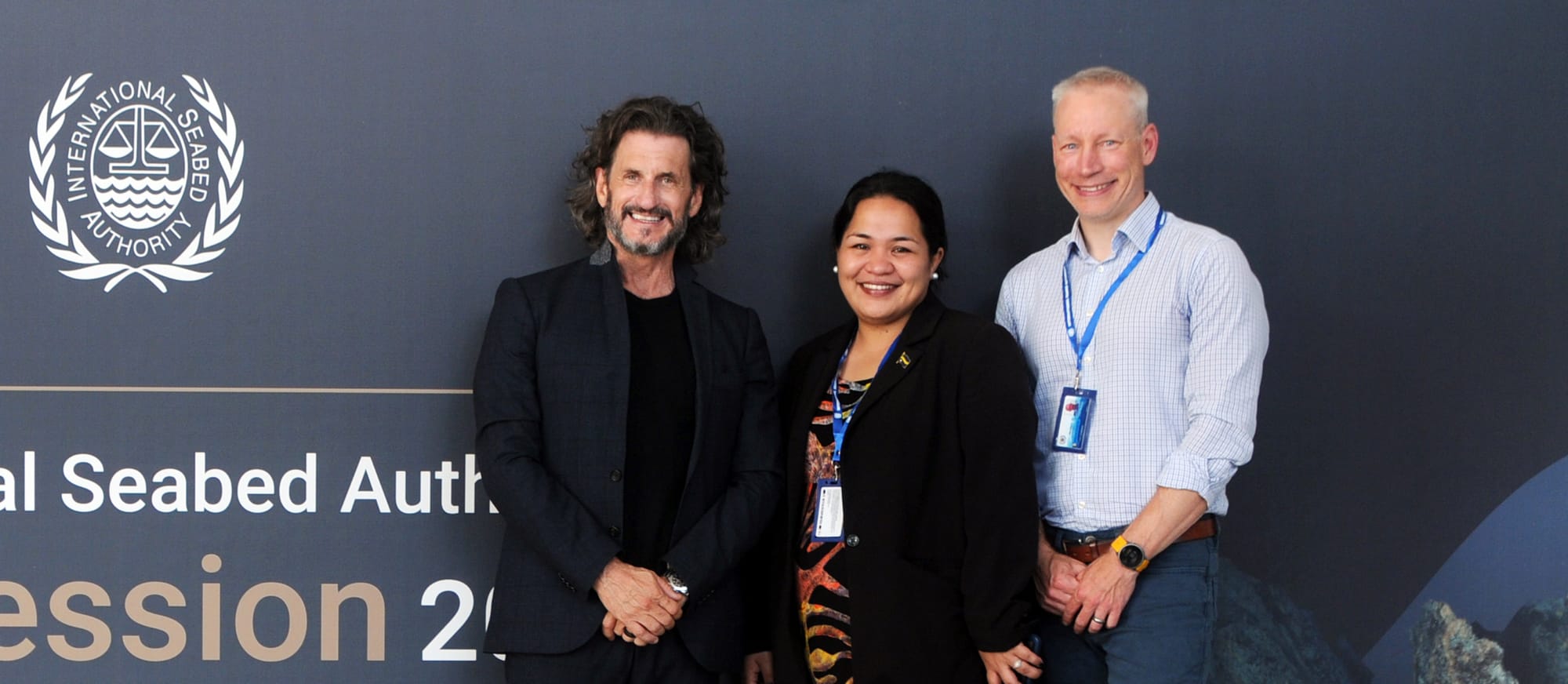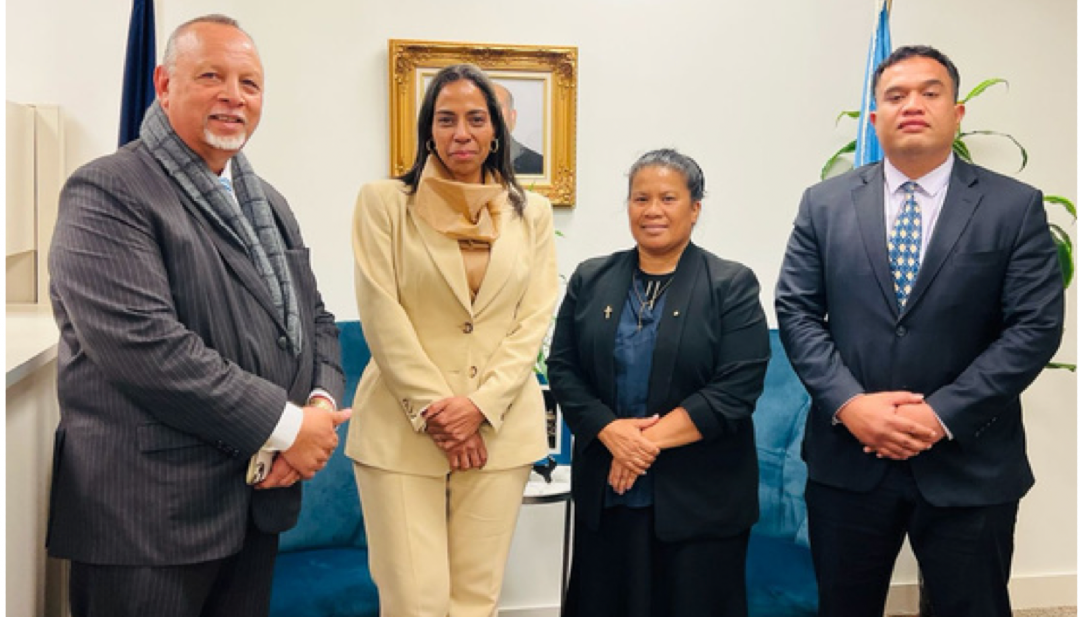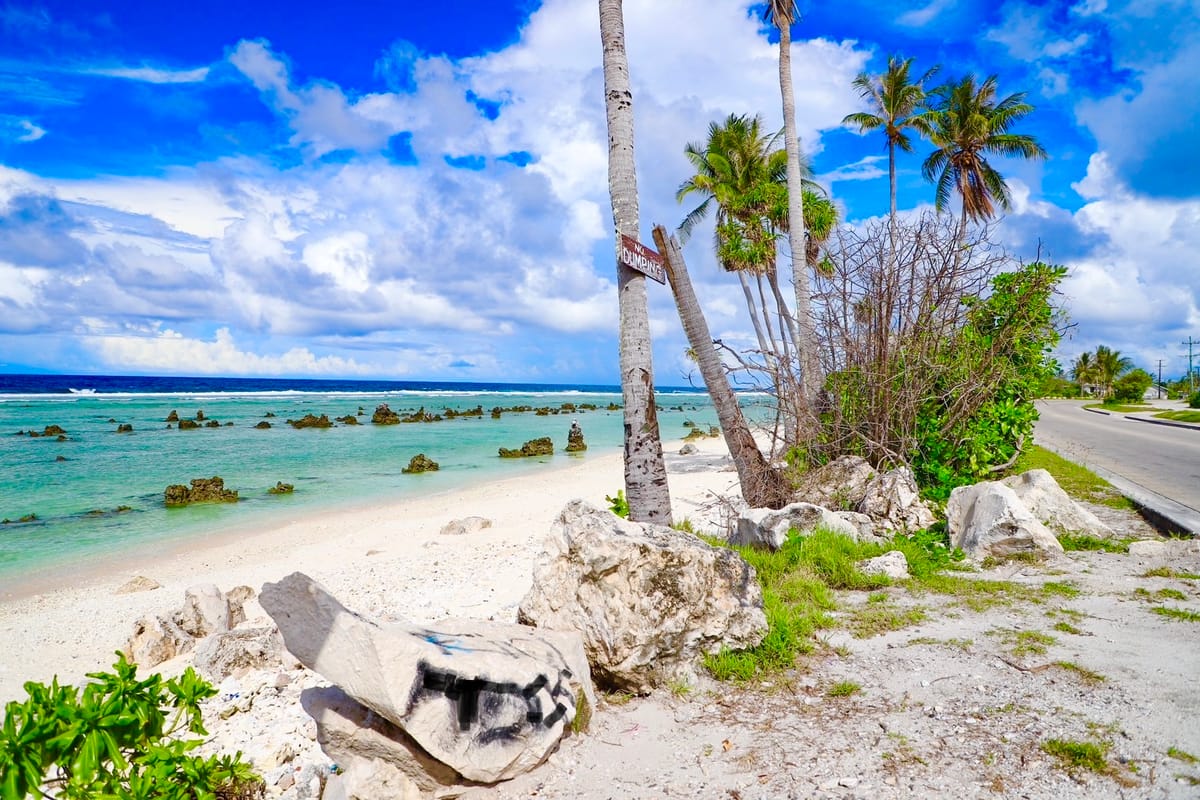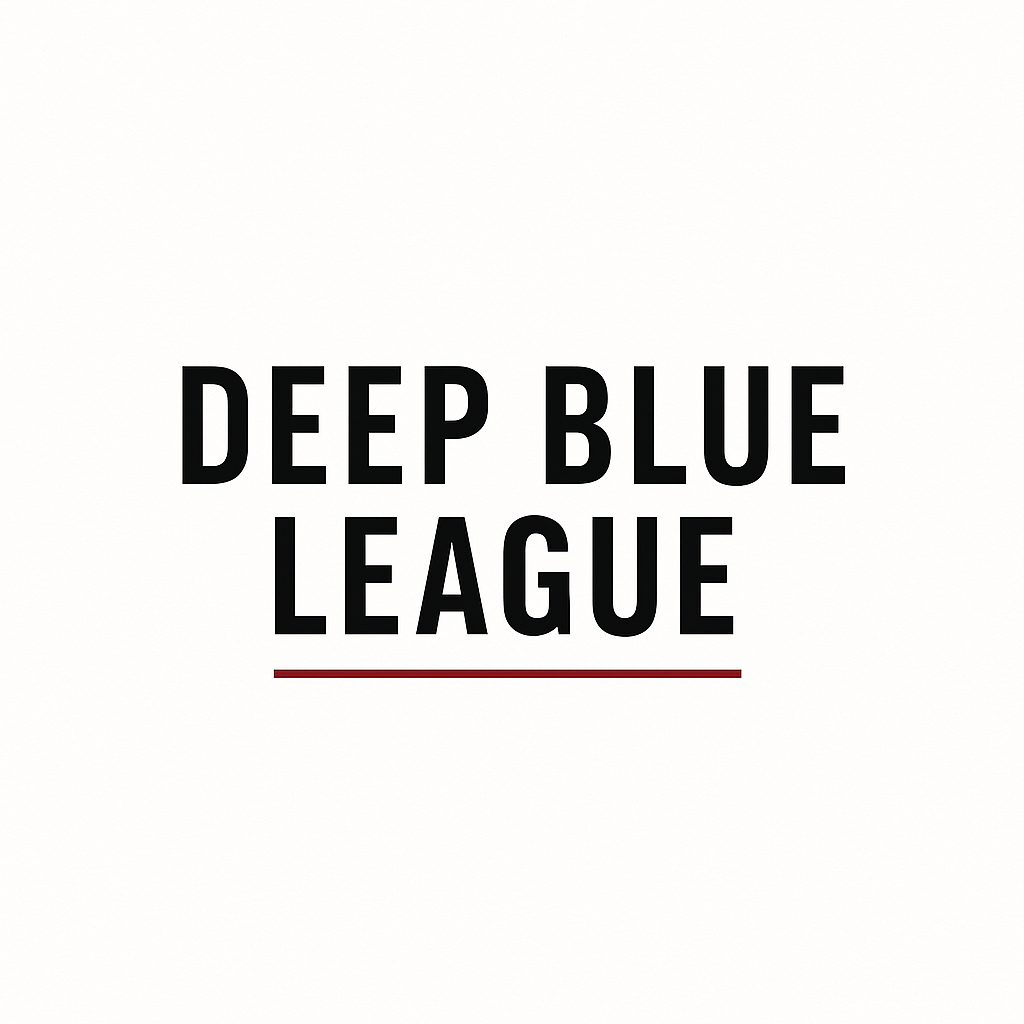Coming in from the cold: The Metals Company honours financial commitments to Nauru in revised agreement after weeks of speculation
TMC's shift to the American regulator left its deep sea mining partners Nauru and Tonga in a state of uncertainty. A new agreement with one of the two Pacific states promises to ease concerns.

The Metals Company (TMC) has announced that it will continue to compensate long-standing deep sea mining sponsor Nauru, despite pivoting to the United States regulatory framework for its deep sea mining licence.
The announcement ends weeks of speculation whether cash strapped Nauru would be left in the financial cold, following TMC's decision to abandon the International Seabed Authority (ISA) route and apply for a commercial licence solely through the US regulator.
Continuity of benefits
In a press release a short while ago, TMC announced that it will continue to provide the same benefits to the Micronesian state even if it doesn't use its Nauru subsidiary to conduct commercial operations.
"The Republic of Nauru will continue to receive existing financial benefits, training and capacity building programs and in-country community and social programs it receives today, while ensuring that, in consideration for its continued sponsorship of NORI, Nauru will receive continuity benefits upon the commencement of commercial production by NORI or another TMC subsidiary."
The Pacific nation sponsors an exploration contract for TMC's Nauru subsidiary, NORI (Nauru Ocean Resources Inc), through the ISA.
It was expected to benefit financially once the company transitioned to an exploitation licence under ISA’s regime.
However the pivot to the US regulator means it is TMC's US subsidiary that would be granted a commercial permit to deep sea mine, not NORI, leaving the 2017 sponsorship agreement with NORI, the Government of Nauru and the Nauru Seabed Minerals Authority in doubt.
Under that agreement, TMC pays Nauru an annual administration fee for 'sponsorship and associated services' and this was expected to be adjusted upwards once commercial recovery of polymetallic nodules begins.
TMC was also obligated to pay a seabed mineral recovery fee based on the volume of polymetallic nodules extracted, and "once a minimum recovery threshold is reached".
TMC says the agreement has now been revised, given the developments since April.
Never leave a man behind …nor a country. Nauru have been the most amazing partner and we will remain arm in arm as we traverse the path ahead. Now that we count USA as our partner, the future is bright for us all. #criticalminerals #usa #nauru pic.twitter.com/KJfXmvLVMI
— gerard barron (@gtbgtb) June 4, 2025
The new agreement
Administration fee
Under the new agreement signed on 29 May, Nauru will get an administration fee from TMC "no greater than USD 500,000" in the first year of payment, and the fee will increase by "no more than 5% in each subsequent year".
Continuity benefits
If TMC gets the licence from the National Oceanic and Atmospheric Administration and begins mining, there will be an additional continuity benefit payment to Nauru for continuing to sponsor NORI's exploration area.
Although it is TMC's US subsidiary that would be conducting deep sea mining in the CCZ under a US licence, it was acknowledged in the agreement that Nauru deserves compensation for it 14 year relationship which both parties are hoping to continue through the existing ISA exploration contract, and even if exploitation never materialises through the ISA regime.
Sponsorship Agreement, dated May 29, 2025, among the Government of the Republic of Nauru, the Nauru Seabed Minerals Authority, and Nauru Ocean Resources Inc.
Annual payments
If TMC gets a licence from the US and begins deep sea mining (known as the continuity conditions), it will then begin to issue the following payments to Nauru:
| Year | Amount to Nauru |
|---|---|
| Year 1 | USD 1,000,000.00 |
| Year 2 | USD 2,000,000.00 |
| Year 3 | USD 4,000,000.00 |
| Year 4 | USD 8,000,000.00 |
| Year 5 | USD 10,000,000.00 |
Warrant
A day after the agreement was signed on 29 May, The Metals Company also issued to Nauru a warrant to purchase 9,146,268 common shares of the Company with an initial exercise price of $4.72 per share.
"The warrant is exercisable upon the achievement of certain conditions related to U.S. regulatory approvals and the Company’s commercial recovery efforts as set forth in the Warrant, and will expire five years from the date of issuance"
The agreement is also accompanied by a Deed of Guarantee and Indemnity in favour of Nauru.
Seabed Mineral Recovery Payment
Despite forgoing any future exploitation licence through the ISA, the agreement with TMC still includes a payment clause based on the volume of nodules extract under any potential ISA deep sea mining licence.
However, Barron and CFO Craig Shesky had indicated at the company's first quarter corporate update on 14 May that TMC was abandoning the ISA licensing route as it relates to exploitation:
We're not applying to the ISA, we're only going to be applying to NOAA [The National Oceanic and Atmospheric Administration]. - Barron
"We wouldn’t want a situation where the complication of having to consider permitting over the same area from two regimes" - Shesky
Nauru's response
There is no update on the official Nauru government website, but the President of Nauru, David Adeang, provided a quote for the TMC press release, shoring up support for deep sea mining:
"As a Pacific Small Island Developing State, our identity and future are inseparable from the ocean, and we would never support any activity that risks serious harm to it. Science, not slogans, has always guided our stewardship, and we remain committed to that path.”
“We believe the world must explore new sources of critical metals if we are to address the urgent realities of climate change ... We are grateful to NORI and TMC for their continued partnership and commitment to responsible development that will deliver lasting benefits to the people of Nauru.”
Nauru's financial plight
The press release also notes a commitment from the Government of Nauru to channel the majority of the financial benefits into the Intergenerational Trust Fund of Nauru to address "structural vulnerabilities" and enhance the nation's long-term economic resilience.
Nauru has struggled since the country's tiny land mass was stripped of phosphate and left un-replenished by colonial powers Australia and the United Kingdom in the last century.
With only 14, 000 inhabitants and limited economic options, the island has tried various strategies to improve its outlook, including controversially selling citizenship and processing asylum seekers for nearby Australia.
The prospect of deep sea mining proceeds was meant to be another revenue source and Nauru has been a faithful partner of TMC since 2011, allowing the company, through the ISA sponsorship arrangement, to conduct test recoveries and impact assessments needed to prepare for its commercial licence.
The country's delegation also famously applied pressure on the ISA to finalise mining regulations, on behalf of TMC.
CEO Gerard Barron acknowledged the essentiality of the relationship in the press release today:
"Without their trust and commitment, none of what we’ve built would have been possible."
"We are deeply proud of the work we have done together—from building the most comprehensive environmental research program in deep-seabed resource development, to pioneering a path for other small island developing states to participate meaningfully in this industry. This is a partnership rooted in shared values, and we look forward to continuing this journey, guided by science and respect for the ocean that connects us all".
Maintaining the relationship
At the company's Q1 corporate call in May, Barron had said NORI would seek to maintain the exploration contract it has with the ISA when it comes up for renewal next year, which means Nauru would remain a TMC sponsor:
"There’s no legal basis on which that licence cannot be renewed...the fact that we’re putting in application through our US subsidiary has no bearing on the renewal. So we’re covering all bases"
If the contract to explore 74,830 square kilometres of the Clarion Clipperton Zone is not terminated, the arrangement would allow Nauru to continue collecting the administrative fees associated with the sponsorship role.
ISA requires commercial miners to have a country sponsor in order to apply for exploration contracts or future commercial licences. It is not clear if the UN body will have grounds or seek to terminate NORI's exploration contract for the CCZ in response to The Metal Company's decision to snub the regulator.
The ISA has made it clear that it sees the decision as a breach of international law.

Graduating to 'high income status'
Nauru's need for as much support as possible is underscored by its appeal last month to stop its graduation to high-income status under OECD criteria.
That move is set to happen in January 2026 under Official Development Assistance rules and would disqualify the country from accessing certain forms of international financial support.
At the annual Asian Development Bank meeting in Milan on 4 May, Nauru's Deputy Finance Minister Delvin Thoma told the Board of Governors:
“Graduation under the current criteria disregards our structural vulnerabilities as a Small Island Developing State. The Multidimensional Vulnerability Index provides a more accurate and comprehensive measure of our development context. Nauru strongly supports its adoption as the guiding metric for international assistance.”
Nauru is climate vulnerable, has no natural fresh water source, and faces prolonged droughts.
US considers benefit sharing
In addition to the updated agreement and continuity of benefits, Barron pointed to the fact that the United States, through Donald Trump's executive order on deep sea mining, is exploring the "feasibility of a seabed benefit-sharing mechanism" which sounds similar to the ISA's equitable mandate under which TMC and Nauru operate.
Barron says he is heartened by this and that he's "certain that 'Big Ocean States' like Nauru will continue to play a leading role in the industry."
Deep Blue League questions
News on the updated agreement with Nauru follows our questions to TMC on 16 May which included the following:
"Give that you may be exploiting NORI resources through your US subsidiary, and given the good faith agreements entered into, is there compensation being considered, discussed, or assessed as being required under contract to Nauru and Tonga for not pursuing exploitation through the ISA?"
We also queried what taxes were being paid by the TMC subsidiaries in Nauru and Tonga given previous commitment to do so.
Deep Blue League did not receive a response but the latest agreement specifies that "for the avoidance of doubt, the NORI Group will not be subject to or required to pay any other Taxes for the Term (of the agreement)"
Tonga
The Metals Company also has an exploration contract for 74,713 square kilometres of the CCZ through a subsidiary called TOML in the Kingdom of Tonga, another Pacific state.
It is not clear what overtures have been made to update that agreement.
Read:

For editorial comments or questions: [email protected]


